 In Zinguinchor, in the region of Casamance, the team-members of Senegalese NGO Oceanium got together to decide on the next new step of the great adventure started in 2006. It made it possible for 420 villages to restore 10 000 hectares of mangrove, which corresponds to the surface of Paris, with the help of the Livelihoods Fund. The new goal was this time to create a business incubator in order to better protect and increase the status of the mangrove.
In Zinguinchor, in the region of Casamance, the team-members of Senegalese NGO Oceanium got together to decide on the next new step of the great adventure started in 2006. It made it possible for 420 villages to restore 10 000 hectares of mangrove, which corresponds to the surface of Paris, with the help of the Livelihoods Fund. The new goal was this time to create a business incubator in order to better protect and increase the status of the mangrove.
Questions to Ismail Sall, responsible for the mangrove project at Oceanium and Bernard Giraud, in charge of Livelihoods.
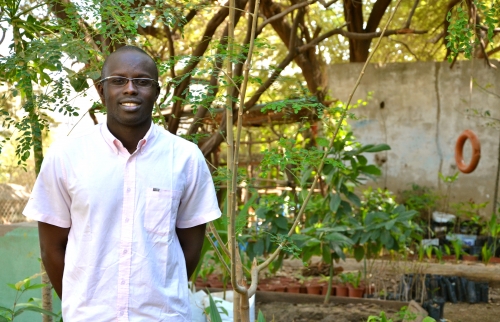
Oceanium is known for its tree nurseries. Why spark this “business nursery” project?
Ismail: Oceanium’s mission is to work along with communities to protect and restore an ecosystem which supplies their food-producing resources in the deltas of Casamance and Saloum. Entire villages have rallied to plant millions of mangrove plants.
The ecosystem represents many things for the local population: the reproduction of fish, the possibility to rehabilitate rice fields that had previously been flooded by salt water, but also shells, timber wood or the excellent honey that bees make from mangrove flowers.
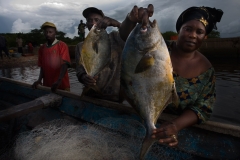
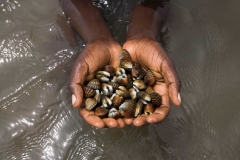
The mangrove will be all the more protected by the local population once people will have understood that it is a true source of food, revenue for the families, jobs for young people etc. We are therefore going to support the local initiatives that will help develop the economic value of these resources for the local population, while respecting the ecological equilibrium on the long-term. Because now that such hard work has been done to restore the ecosystem, there is no way it should be ran in a thoughtless way.
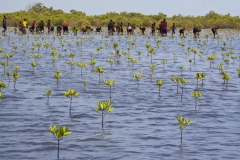
Who are the entrepreneurs and what will they bring to the incubator?
Ismail: The same way a tree nursery helps seeds turn into tender shoots and then great trees, Oceanium’s incubator will provide young projects with conditions that encourage their development: such as projects led by women who want to develop oyster and fish farming. There are also beekeepers who wish to regroup to market their honey better, etc. We are currently making an inventory of all these initiatives and of the “entrepreneurs in the making” who might need some help developing their project. The coordinators at Oceanium, who live in the villages of the Casamance region, are entrepreneurs themselves: many of them have already started working on projects and others want to make the leap.
The incubator will first of all be a network of entrepreneurs who can rely on one another, work together and help each other. It will enable us to mobilize the competences that each project requires: technical expertise, management and quality training, market researches and marketing techniques, making a business plan, managing teams, organization, governance, etc. The idea is simple: working step by step, while helping entrepreneurs manage each stage of their project. The incubator will be like a platform bringing several partners together and providing competences that are complementary to the ones supplied by Oceanium. It will help them build their own sustainable development themselves.
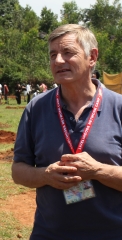
Why is Livelihoods supporting this project?
Bernard: Optimizing resources seems to be the next logic step after restoring the mangrove, which is a project that the Livelihoods Fund put a lot into. Thanks to the large scale plantation of mangrove, the villages have in some way recreated the foundations of their community. They can now start building on these foundations, this means organizing to optimize resources in a sustainable way. Livelihoods and Oceanium have teamed up in a long-term partnership to keep the carbon project going for twenty years. The incubator is in line with this long-term approach. It is a new approach which combines the restoration of an ecosystem and the creation of economic and social value. We are learning as we go along. Livelihoods will finance the pilot stage of the incubator with the support of the French Global Environment Facility (FFEM).
But we could do so much more to help the entrepreneurs of Casamance if we mobilized the many competences that the 8 business-partners of the Livelihoods Fund and the Livelihoods network could provide.
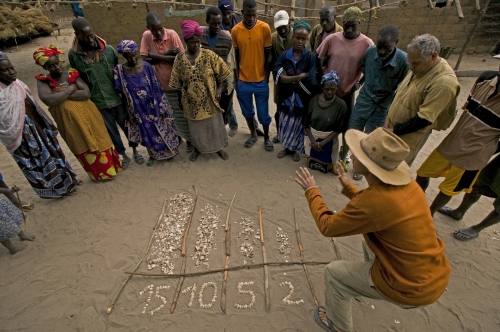
More on Oceanium Dakar (website in French)

